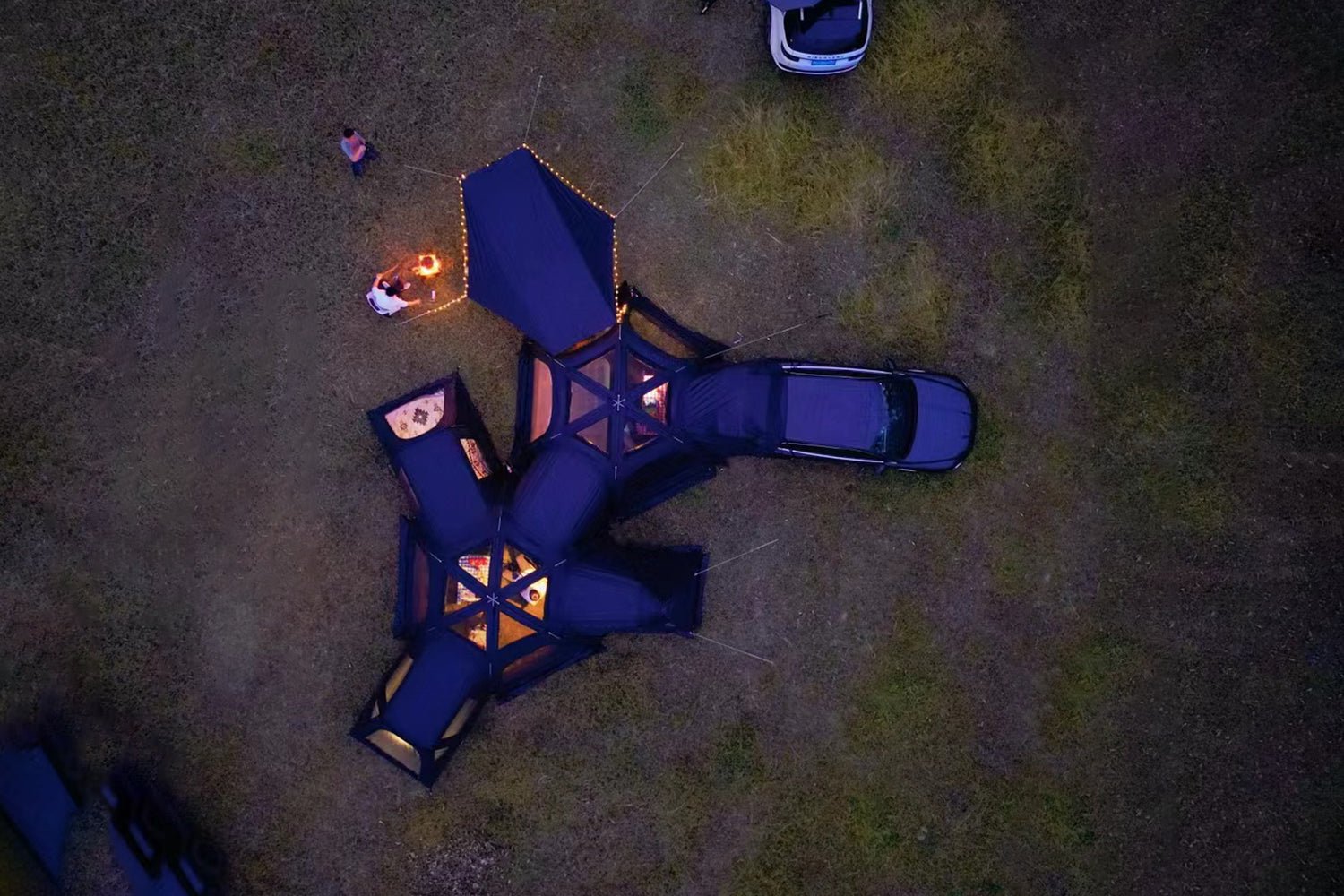The Evolution of Tent Technology: Tracing the Trends
The Emergence of Smart Camping
Smart camping has transformed outdoor adventures. Campers now have access to tents equipped with cutting-edge technology. These tents offer features like solar power connectivity and climate control. Built-in LEDs and USB ports add comfort and convenience. Smart sensors monitor weather and adjust tent settings automatically. Some tents even link with apps to control features from a smartphone. This tech makes camping safer and more enjoyable. It's a significant trend in the evolution of tent technology.

Advancements in Material Engineering for Tents
The world of tents is being reshaped by cutting-edge material engineering. Advances focus on creating fabrics that are lighter yet stronger, and more capable of withstanding extreme weather. Innovative materials like Cuben Fiber, now known as Dyneema Composite Fabrics, have set new standards for durability and weight. With enhanced thermal properties, these fabrics keep campers warm in winter while reflecting heat in the summer. A notable trend is the rise of self-healing materials that can repair small punctures, reducing the need for frequent replacements. Tent technology has also seen the introduction of 'smart fabrics' capable of adjusting their breathability based on external conditions. The fusion of nanotechnology with tent fabrics has paved the way for waterproof yet breathable shelters, making them more comfortable and versatile for various climates. Material engineering is not just about comfort; it's integral in minimizing the environmental impact. The next generation of tents uses recycled and eco-friendly resources, furthering the movement towards sustainable outdoor living.
The Impact of IoT on Outdoor Tent Experiences
The Internet of Things (IoT) has deeply influenced tent technology. Tents are now 'smart'. They can connect to devices and share data. Campers can control tent features with their phones. IoT allows for improved safety and comfort while camping. Lighting, climate, and security can be managed remotely. Future tents may even adapt to changing weather using IoT. This tech makes camping more convenient and enjoyable.
Futuristic Tent Features: Enhancing the Camping Experience
Integrating AI and Machine Learning
Tent technology is entering a new era with the integration of AI and machine learning. Imagine tents that adjust their internal temperature based on weather data. Or consider how smart tents might optimize their own structural stability in response to changing outdoor conditions. This exciting wave of innovation signifies a leap forward in outdoor living and comfort. In the near future, we may see tents offering features such as voice-controlled environments, predictive maintenance systems, and even interactive educational content on the surroundings. The possibilities for enhancing the camping experience with these intelligent systems are vast and promising.
Eco-Friendly and Sustainable Tent Solutions
The outdoor experience is going green with futuristic tent designs. Eco-friendly tents are making waves in sustainable living. These designs use renewable materials, such as recycled fabrics and biodegradable coatings. They also feature solar panels for renewable energy. Green tech reduces the carbon footprint of camping. Some tents use natural light and ventilation to cut energy use. Eco-tents offer a guilt-free way to enjoy the great outdoors. They blend high-tech features with Mother Nature's best principles. In this new era, tents not only shelter but also respect the environment.
Personalization and Customization Trends
Futuristic tents are evolving to meet the unique needs of each camper. Greater personalization and the ability to customize your camping setup are key trends. Think of tents that adapt to various climates or connect to other smart devices. Future tents will likely offer modular designs. This means you can add or remove parts depending on the trip. Smart apps may let users control tent features or track camping gear. Customizable lighting and climate control are also on the horizon. These features not just improve comfort but also help campers feel at home outdoors.
The Business of Tents: Market Trends and Consumer Demands
The Rise of Eco-Conscious Camping
A shift towards eco-conscious camping reflects changing values among outdoor enthusiasts. More campers are seeking ways to reduce their environmental impact. As a result, the tent industry is adapting to meet this demand. There is an increase in tents made from sustainable materials. Features like solar power and rainwater harvesting are becoming popular. Brands leading this trend often highlight their eco-friendly practices. They use these practices as key selling points. The market is also seeing a rise in products aimed at leaving no trace behind. This change is driven by campers' desire to preserve the natural spaces they enjoy. In turn, this has created a niche market for green camping gear. Producers who prioritize sustainability are carving out a strong position in the market. Eco-conscious camping isn't just a trend; it's a movement shaping the future of outdoor living.
Market Analysis: Who's Leading the Tent Technology Revolution?
The tent tech industry is seeing dynamic leaders emerge. Companies are focused on innovation, striving to create smarter, more sustainable tents. Some notable players have carved niches in advanced materials and IoT integration, while others have emphasized eco-friendly designs. These leaders not only set market trends but also challenge the status quo, pushing for a more technologically integrated outdoor experience. The result is a competitive marketplace where consumer demands drive rapid advancements in tent technology.
The Role of Consumer Feedback in Shaping Future Tents
Consumer feedback is now a key driver in tent innovation. Makers listen to what campers need. Reviews impact design choices directly, shaping the future of tents. Buyers look for comfort, durability, and tech integration. Brands use this data to create tents that meet these demands. Smart features, green materials, and custom options are in focus. By doing so, brands stay ahead in a competitive market. They offer what outdoor enthusiasts truly want in their gear.

